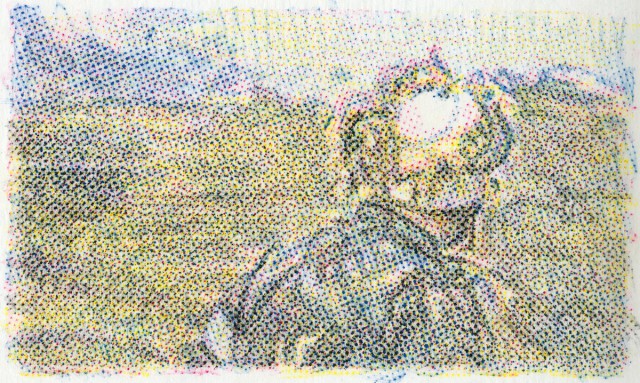Art & Exhibitions
At the Art Gallery of Ontario, Stephen Andrews Reveals the Pathos in the Iraq War
THE DAILY PIC: Andrews fights the tidy view from the Bush Situation Room.

THE DAILY PIC: Andrews fights the tidy view from the Bush Situation Room.

Blake Gopnik

THE DAILY PIC (#1350): This is a single one of the 900 colored-crayon drawings that went into a short animation called The Quick and the Dead, by Canadian artist Stephen Andrews. He’s the subject of an elegant survey running now at the Art Gallery of Ontario in Toronto. (Click on my image to watch the piece.)
Channeling some of the achievements of pioneering Canadian animators such as Norman McLaren, Andrews redrew each frame from a fragment of found footage that showed an American soldier in Iraq casually putting out the flaming corpse of an Iraqi.
Stephen’s work is clearly meant to reflect on the horrors of war – and especially of that notably stupid war – but instead of showing the standard brutality of battle it shows a strange act of almost-compassion, or at least of battlefield hygiene, on the part of the Americans.
That means it may actually get closer to the heart of the Iraq war than most artworks have: The war was pursued out of a kind of technocratic desire for order – geopolitical OCD, you could call it – rather than for reasons of true rage or spite or even realpolitik. American hawks thought they could walk in and “put out” the trash-fire that was Saddam Hussein. Instead, their calculated slaughter gave us our current conflagration.
The Bush Situation Room lacked all humanity. Stephen Andrews gives some back to us thanks to the hand labor he’s put into his drawings, and the fractured, hesitant look of the animation that comes out of them. In The Quick and the Dead, it’s not the fog of war that’s keeping us from seeing clear; it’s a veil of tears.
For a full survey of past Daily Pics visit blakegopnik.com/archive.